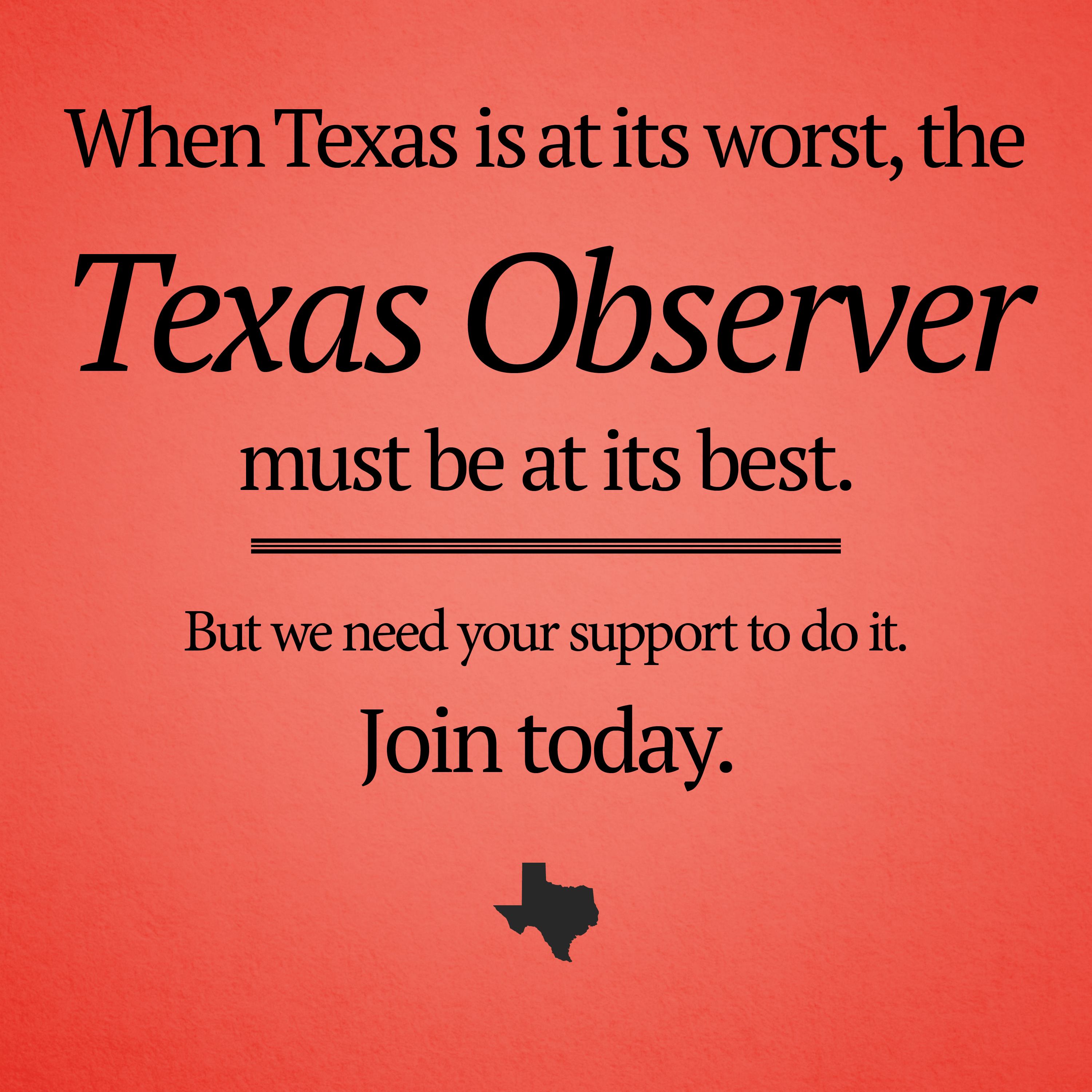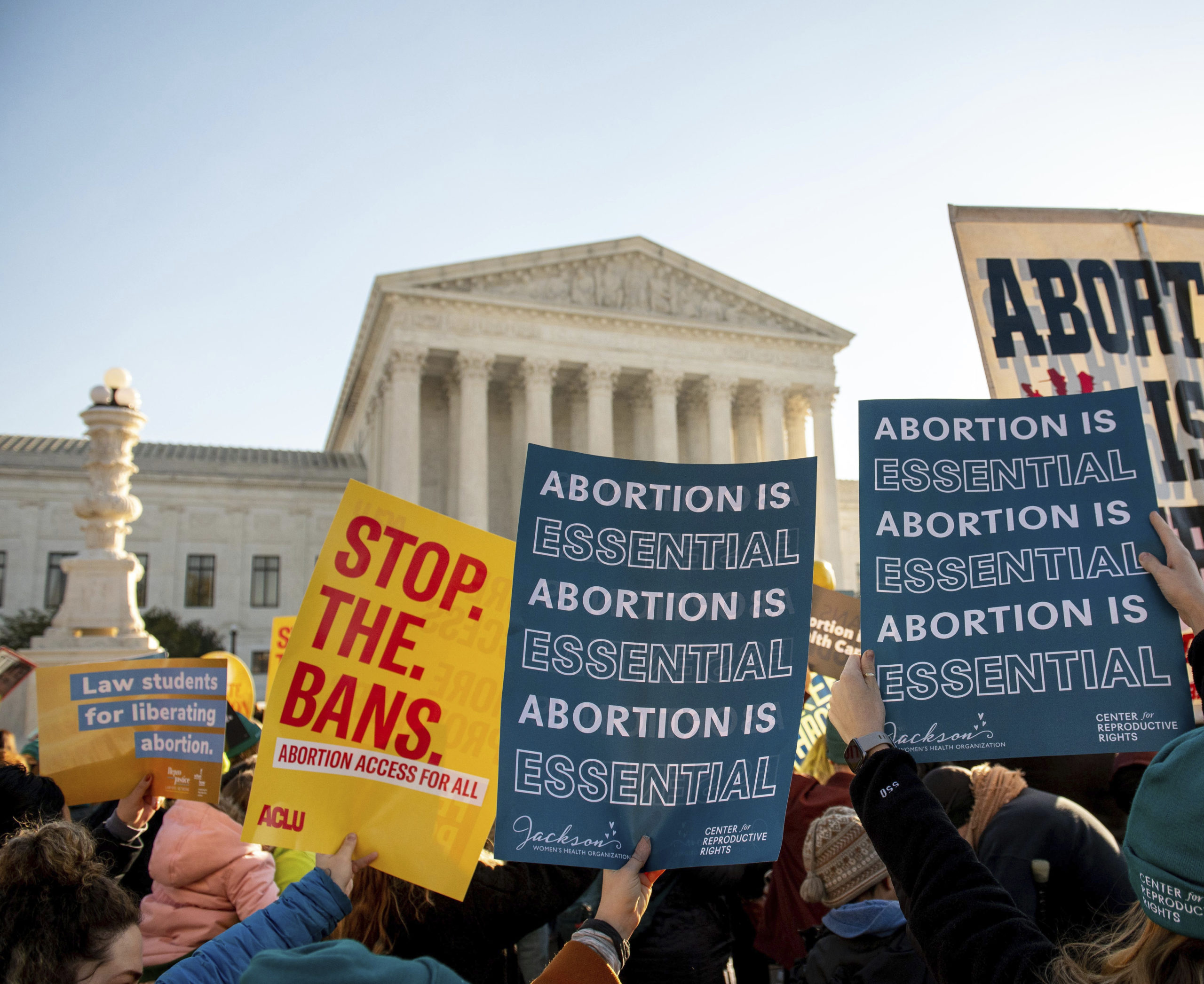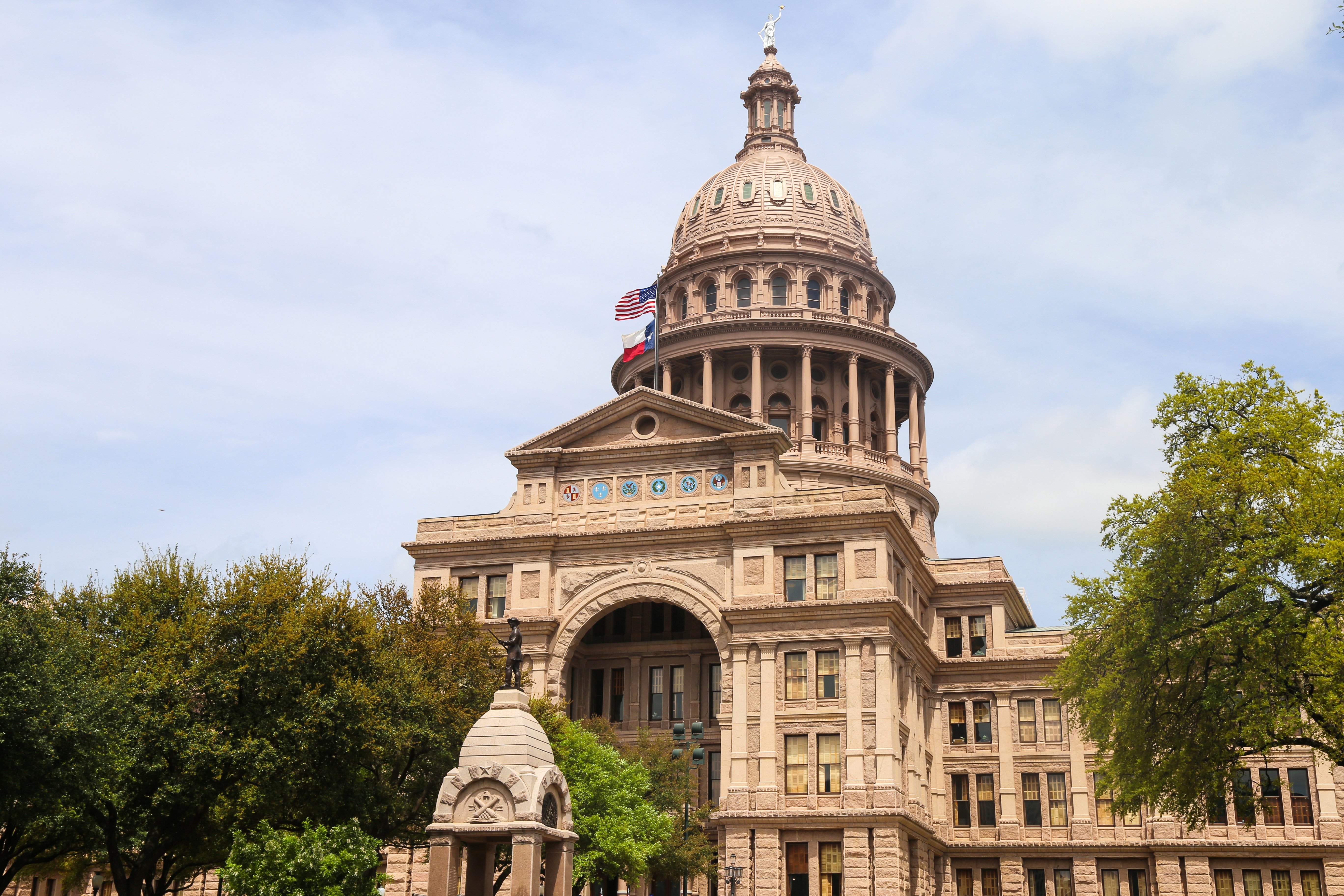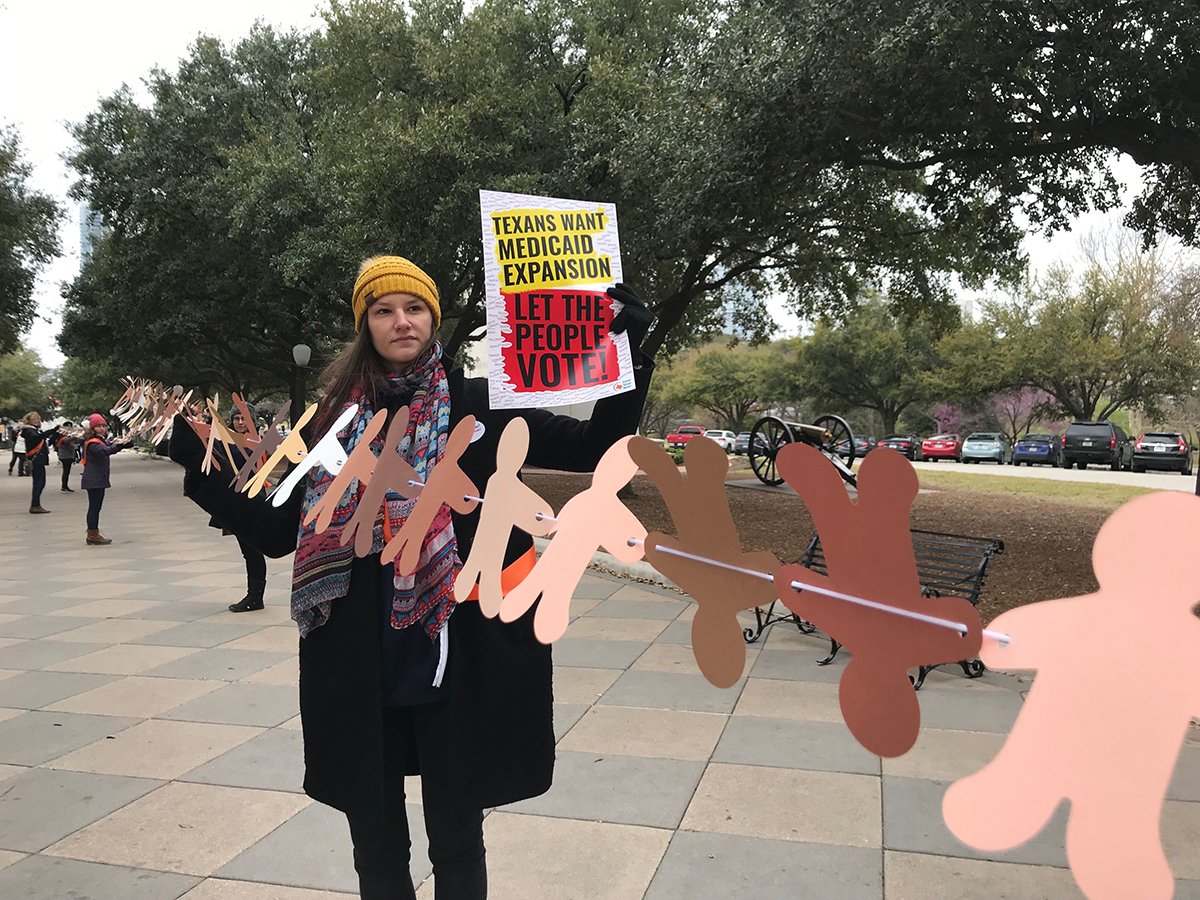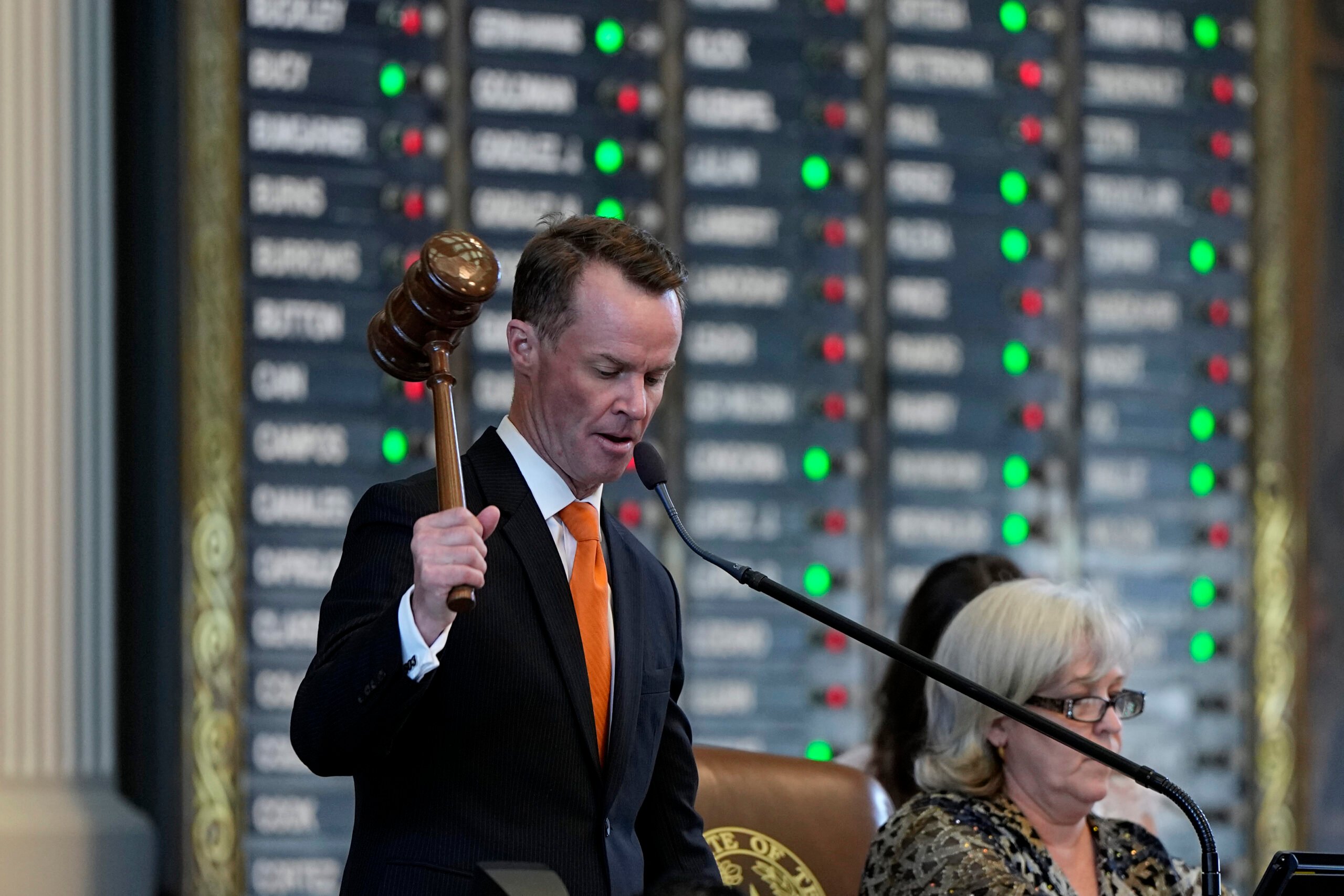
Dade Phelan’s Efforts to Expand Healthcare Still Leave Many Struggling in His District
The House speaker has never backed full Medicaid expansion, and GOP resistance could now harden.
Three years ago, Texas House Speaker Dade Phelan unveiled a set of bills that he declared would improve the health of millions of Texans, largely by expanding access to healthcare.
The measures, authored by Republicans and Democrats, were applauded by health advocates such as the Texas Medical Association. This month, an updated version of one of the most noteworthy bills took effect, extending postpartum Medicaid coverage for new mothers from two months after giving birth to a year.
The reforms—most of which passed—fell short of full Medicaid expansion, but they cast the newly elected House speaker in a milder light: a conservative Texas GOP leader willing at times to prioritize the state’s serious healthcare gaps.
Phelan toes a conservative line, including supporting one of the country’s most restrictive abortion bans. But some advocates were hopeful that Phelan’s “Healthy Families, Healthy Texas” plan, which included bills from Republicans and Democrats, might signal openness to Medicaid expansion approval to cover more low-income adults. Texas is one of 10 states that haven’t expanded the program and has the nation’s highest rate of residents without health insurance, at nearly 19 percent for those under age 65.
But Republican leaders, including Phelan, haven’t budged. Asked in 2021 why his health reform agenda didn’t include expansion, Phelan said, “That’s a different conversation than what we’re discussing right now.” He didn’t rule it out, however. “We will have that debate,” he said.
Now, if he ever seemed like a willing listener on expansion, the prospect could soon vanish.
Phelan is fighting to keep his House seat in a primary runoff on May 28 in his far southeast Texas district. In the March primary results, Phelan trailed his Trump-endorsed challenger David Covey by three points. Another candidate, Alicia Davis, came in third and has since endorsed Covey. It was the first time Phelan had faced an opponent since he was elected to the House in 2014.
The high-profile face-off and other challenges to incumbents have spotlighted a power struggle among Texas Republicans that could push the Legislature further to the right.
Other than abortion, healthcare issues are not dominating the debates in Texas campaigns. Phelan’s office declined to talk to Public Health Watch for this story or provide a statement on Medicaid expansion.
But back home in his district—state House District 21, a vertical stretch of rural, metro, and industrial communities sandwiched between Houston and Louisiana—the needs for affordable healthcare are high.
District 21 represents all of Jasper and Orange counties and about a quarter of Jefferson County’s population, including part of Beaumont, Phelan’s hometown. Nearly 19 percent of District 21 residents younger than 65—or about 28,500 people—are uninsured, according to the Census Bureau’s 2022 five-year estimates.
Like much of Texas, the district has a shortage of primary care providers. Hospital services are tenuous. In rural Jasper County, there’s only one hospital—Jasper Memorial, part of Christus Southeast Texas—and it no longer has a labor-and-delivery unit. The next closest is an hour northwest to Lufkin or an hour south to Beaumont.

Orange County, a major hub for chemical manufacturing, lost its only hospital in 2017, making it the most populous county in Texas without a hospital until Christus opened one there in January.
The lack of access isn’t for lack of need. Federal, state and university research data show counties in District 21 are among the least healthy in the state, with high rates of cancer, diabetes, mental distress, and stroke deaths.
A handful of safety-net providers are available to the area’s thousands of uninsured, but their medical capacity is limited. And one—the Jasper Newton County Public Health District—is struggling to maintain its primary health-care program, its director said.
The health district started offering free and low-cost primary care about 30 years ago to help address the region’s access gap. Its clinic, located inside the agency’s century-old building near Jasper’s town square, sees hundreds of primary care patients a year, all of them uninsured and living on low incomes.
Services include preventive screenings, lab work, and chronic disease management, but providers can do little if patients need help beyond basic care.
“The majority do without anything we can’t provide here,” said Patty Barthol, clinic director at Jasper Newton County Public Health District. “Most can’t afford even the discounted rate for a CT scan.”
Transportation is also a major barrier in the rural area. “If you’re living in poverty, the disparity starts with just trying to get to the clinic,” said Diane Rashall, the health district’s administrative director.
Rashall said the area had a “[health] insurance deficiency” before COVID-19 and its related job losses made the problem worse. Nearly one-fifth of Jasper County adults younger than 65 are uninsured, according to Census Bureau data. The poverty rate is above 19 percent.
If the health district closes its primary care program, it would leave a sizable gap in the local safety net and vulnerable patients without a medical home. But Rashall said the financial strain of keeping it open is getting too big to bear.
The program is funded through a state grant, which means that if the funding pays for 600 primary care patients in a given fiscal year, the health district will lose money when someone needs more than a single visit. The cost of any additional clients is also unreimbursed.
At the same time, the only way to increase the grant amount is to demonstrate community need by accepting unfunded patients for treatment, Rashall said. It leaves the program in a chronic deficit, and it’s why many local public health departments stopped offering direct primary care, she said.
“Luckily, we have a board that has said it’s important in our county, and as long as we can pay the deficit, we’re going to do it,” she said. “But, to be honest with you … I really don’t know how long we’re going to be able to absorb that.”
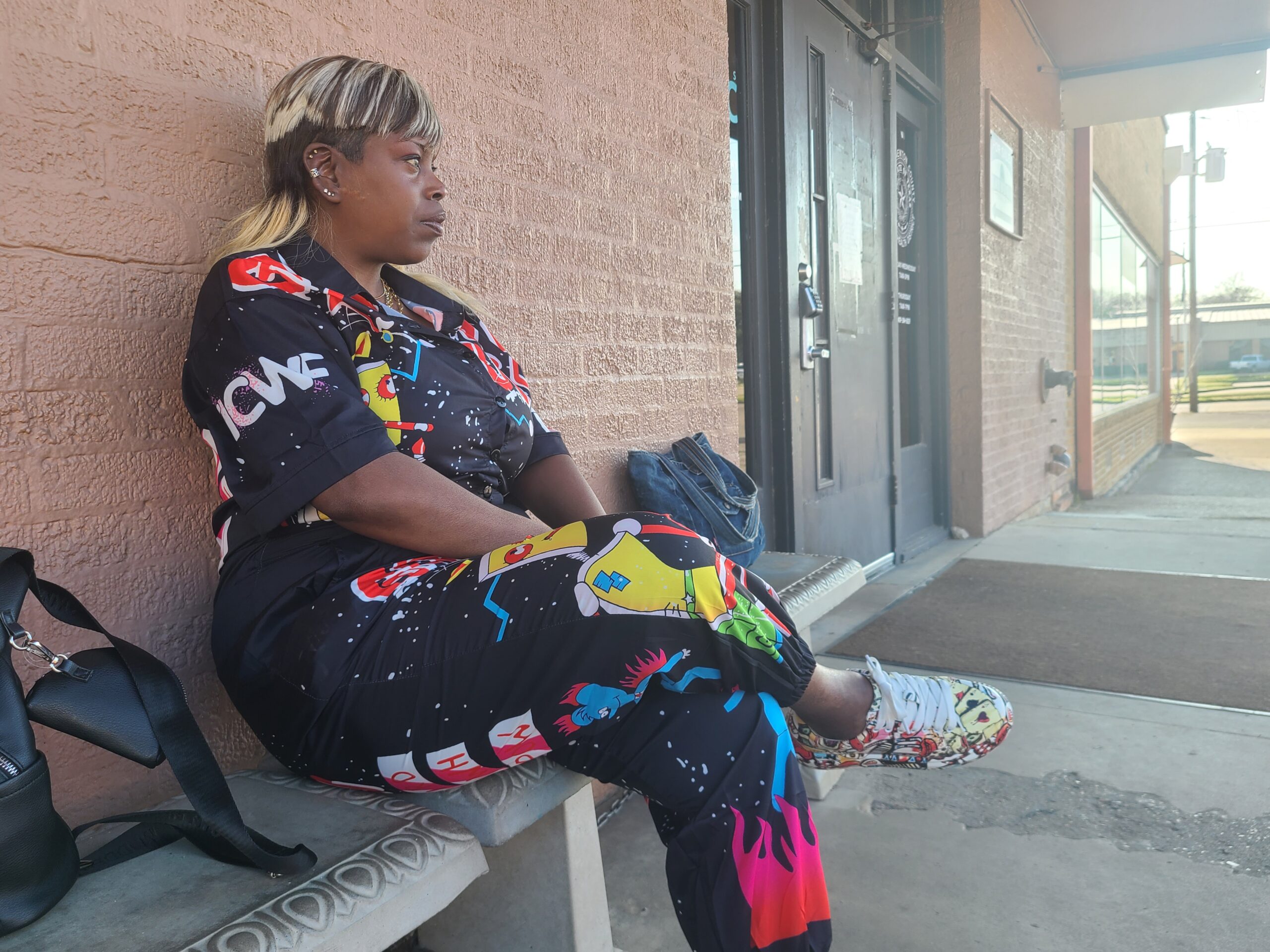
Jasper resident Joycelyn Sampson, 52, doesn’t think she would be alive today without the health district’s primary care program. Unable to afford insurance, she doesn’t know where she would turn if the clinic program were shuttered.
Sampson, who works a part-time night shift at Walmart, has been a patient there for eight years. Last year, during a clinic visit, her blood pressure was so high that a staff member drove her straight to the emergency room.
“I thought I was just not feeling good that day,” she said. “Come to find out, I was almost about to stroke out.”
Sampson is lucky. Research shows uninsured patients are at a higher risk of experiencing and dying from a severe stroke, partly because they lack access to primary care.
Now, she’s on medication to manage her blood pressure.
“I could have really been gone if it weren’t for this place and these people,” Sampson said.
In addition to being House speaker, Dade Phelan works for his family’s fourth-generation commercial real estate and investment company.
The family is a fixture in Beaumont; its wealth traces back to the Texas oil boom of the early 1900s and a wholesale grocery business. A main thoroughfare through the city is named for the Phelan clan.
Philanthropy is part of the family’s profile. Phelan has served on the board of Catholic Charities of Southeast Texas, and his wife, Kim, a lawyer, once represented children and parents in Child Protective Services cases and is involved in charities promoting mental health services.
The area’s serious health needs have knocked repeatedly on Phelan’s door.
In 2016, Jessica Hill, then executive director of the Orange County Economic Development Corporation, was attending a Commissioners Court meeting when she got a text message: Baptist Hospital in Orange, which had been cutting its services for years, was closing its ER, citing financial strains that included the state’s failure to expand Medicaid. That left the county without a single hospital.
“It was a shock,” she said.
The next closest hospital was at least a 30-minute drive to Beaumont or Port Arthur, both west of the Neches River—hardly ideal. In the 2021 freeze that shut down Texas, the bridges to and from Port Arthur were too icy to safely cross.
The hospital’s closure not only deepened the health gap and cost about 100 jobs, Hill said it also made her role—attracting new businesses and jobs to improve the economy—much harder.
“Most young families won’t move to a community that doesn’t have those services, and most large employers won’t locate in communities that can’t offer employees that,” said Hill, who left the job in 2022.
In late January, after years of grassroots work and a 20-acre donation from a local philanthropist, Christus opened a new hospital in Orange with around-the-clock ER services.
Phelan offered “critical” support in bringing a hospital back to Orange, Hill said, and attended the opening-day celebration.
“I think he sees [healthcare] as a very important issue,” Hill said. “I think he understands why it’s important … what it means to a community.”
Phelan’s House district cuts across a range of county-level uninsured rates. In Jefferson County, where Beaumont sits, the uninsured rate is almost 23 percent; in Orange County, it’s 16 percent, and in Jasper County nearly 19 percent. The district’s uninsured rate for children alone—those 18 and under—is in double digits, at 10.4 percent, despite Medicaid’s Children’s Health Insurance Program. One of Phelan’s “Healthy Families” priority bills, House Bill 290—which ultimately was folded into another bill signed into law in 2021—was aimed at streamlining CHIP enrollment so kids don’t churn in and out of coverage.
If Texas lawmakers passed Medicaid expansion—which extends eligibility to adults with incomes up to 138 percent of the federal poverty level, or less than $21,000 a year for a single person—researchers estimate that more than 1.2 million Texans could gain health insurance.
Phelan hasn’t endorsed expansion, despite evidence of its positive health and financial benefits. But his healthcare work in the House—such as shepherding the Medicaid postpartum extension through two legislative sessions, benefitting 137,000 Texans—has signaled his interest in addressing systemic health issues.
It’s unclear if that focus will continue. If he loses his runoff—or even if he wins—healthcare issues could take a back seat to others dominating the campaigns.
“Well, it’s certainly not better for Medicaid expansion if Phelan loses,” said state Senator Nathan Johnson, a Democrat from Dallas, who’s filed bills to expand Medicaid during multiple sessions.
Luis Figueroa, chief of legislative affairs at the progressive nonprofit Every Texan, said the District 21 GOP runoff could help determine if healthcare issues remain a top priority in the Texas House—“because healthcare access hasn’t been a priority in the [state] Senate.”
In Kirbyville, a small town in Jasper County, Nancy Davis will turn 65 in five years. She doesn’t plan to retire, but she said it will be a relief to qualify for Medicare and have health insurance.
Davis, who owns a beauty salon and alterations shop, last had insurance in the early 2000s, when she briefly qualified for Texas Medicaid as a single mother raising three children.
Since losing Medicaid, she’s been a patient at the Jasper Newton County Public Health District. There, she’s been able to access a range of primary care services, such as mammograms and blood pressure checks—which she credits for keeping her healthy and out of medical debt.
“There are lots of single women out there, working, trying to take care of their kids—they need to stay healthy, too,” Davis said. “At least if they had Medicaid, they could go to the hospital and not have to worry about debt they can never repay.”
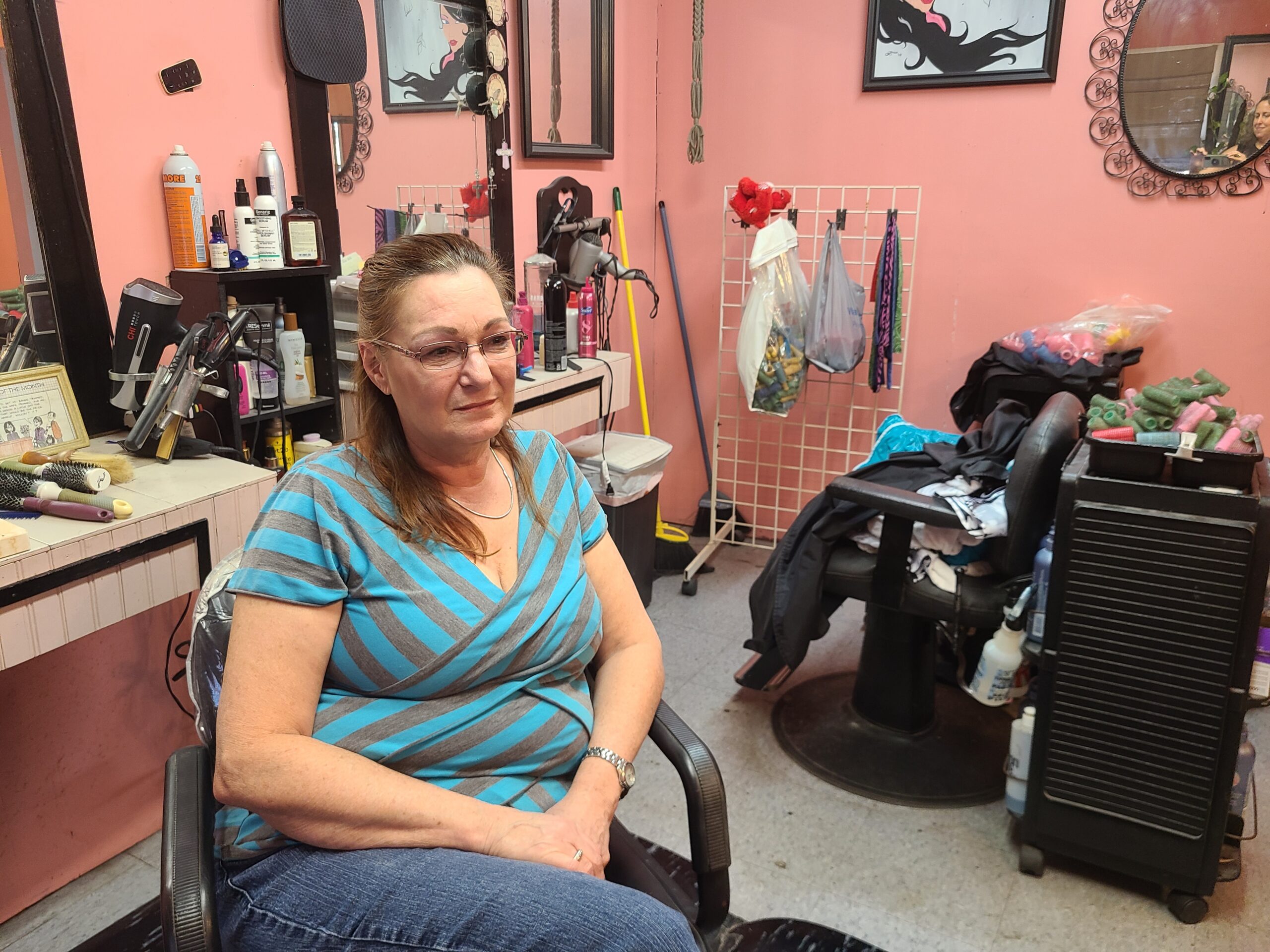
Medicaid expansion would help many, but it won’t solve the access gap, partially because of the state’s low Medicaid reimbursement rates. Many doctors don’t accept the insurance.
TAN Healthcare, a federally qualified health center in District 21, takes Medicaid, but its providers regularly have trouble finding nearby specialists willing to take Medicaid referrals, said Dena Hughes, TAN’s chief executive officer. Sometimes the closest available specialist is more than an hour away in Houston, which is especially difficult for people with limited incomes and transportation.
About 40 percent of patients at TAN—which has sites in Beaumont and Orange and a mobile medical clinic that travels to Jasper and Newton counties—have no coverage, and most of its insured patients qualify for Medicaid.
MyEisha Clifton, lead nurse practitioner and director of medical services at TAN, said the center can help people access low-cost primary care and discounted prescriptions. But if uninsured patients need higher-level care—for example, TAN has recently seen a lot of cancer cases, Clifton said—the costs can be devastating.
“It’s hard for a provider to tell a patient that there’s nothing else that I can do for you because you don’t have health insurance,” Clifton said.
Medicaid expansion wouldn’t plug every gap, Hughes said, but more coverage would matter for patients and providers.
“It would still make a huge difference,” Hughes said. “Huge difference.”
The story is part of “The Holdouts,” a collaborative project led by Public Health Watch that focuses on the 10 states that have not expanded Medicaid, which the Affordable Care Act authorized in 2010.
